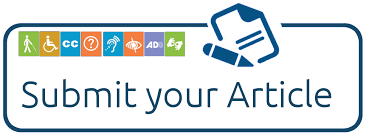Pola Pembelajaran yang Dilakukan oleh Dosen dalam Mengembangkan Kesadaran Beretika pada Mahasiswa Akuntansi
(Studi Kasus pada Jurusan Akuntansi STIE Mahardhika Surabaya)
DOI:
https://doi.org/10.63200/jebmass.v3i1.166Keywords:
Learning Patterns, Ethical Awareness, Accounting StudentsAbstract
This study aims to examine the learning patterns applied by lecturers in developing ethical awareness in accounting students at STIE Mahardhika Surabaya. Ethical awareness is one of the important aspects in accounting education, considering the role of accountants in maintaining integrity and transparency in financial reporting. The research method used is a case study with a qualitative approach, which involves observation, in-depth interviews, and document analysis. The results showed that lecturers used various learning strategies, such as case discussions, simulations, and integration of ethical values into the curriculum, to strengthen students' understanding and ethical awareness. It was also found that varied and interactive learning patterns contributed significantly to the improvement of students' ethical awareness. This study concludes that the development of ethical awareness in accounting education can be more effective if supported by learning methods that are contextual and relevant to the ethical challenges faced in the real world.
Downloads
References
Apdillah, D., Harmika, Z., Sahera, M., & Harahap, H. U. (2022). Communication Ethics as Virtual Virtue Control in Media Behavior Society in the Digital Age. JOURNAL OF HUMANITIES, SOCIAL SCIENCES AND BUSINESS, 1(3), 49–60. https://doi.org/10.55047/jhssb.v1i3.148
Apostolou, B., Dorminey, J. W., Hassell, J. M., & Watson, S. F. (2013). Accounting education literature review (2010–2012). Journal of Accounting Education, 31(2), 107–161.
Bertens, K. (2022). Pengantar etika bisnis. Gramedia Pustaka Utama.
Bruce, J., Weil, M., & Calhoun. (2000). Models Of Teaching. A Pearson Education Company.
Cooper, D. J., & Robson, K. (2006). Accounting, professions and regulation: Locating the sites of professionalization. Accounting, Organizations and Society, 31(4–5), 415–444.
Gow, L., Kember, D., & Cooper, B. (1994). The Teaching Context and Approaches to Study of Accounting Students. Issues in Accounting Education, 9(1).
Hamalik, O. (2006). Proses belajar mengajar.
Qamar, N., & Rezah, F. S. (2017). Etika Profesi Hukum: Empat Pilar Hukum. CV. Social Politic Genius (SIGn).
Rest, J. R. (1986). Moral development: Advances in research and theory. Praeger.
Rochim, S. I., & Irmim, S. (2004). Menjadi Guru yang Bisa Digugu dan Ditiru. Jakarta: Sayma Media.
Sudarman, P. (2004). Belajar efektif di perguruan tinggi. Bandung: Simbiosa Rekatama Media.
Sugiyono. (2016). Memahami Penelitian Kualitatif. CV ALFABETA.
Thorne, L. (2001). Refocusing ethics education in accounting: An examination of accounting students’ tendency to use their cognitive moral capability. Journal of Accounting Education, 19(2), 103–117.
Downloads
Published
How to Cite
Issue
Section
License
Copyright (c) 2024 Anggi Oktita Wati*, Amin Sadiqin, Miya Dewi Suprihandari

This work is licensed under a Creative Commons Attribution 4.0 International License.











